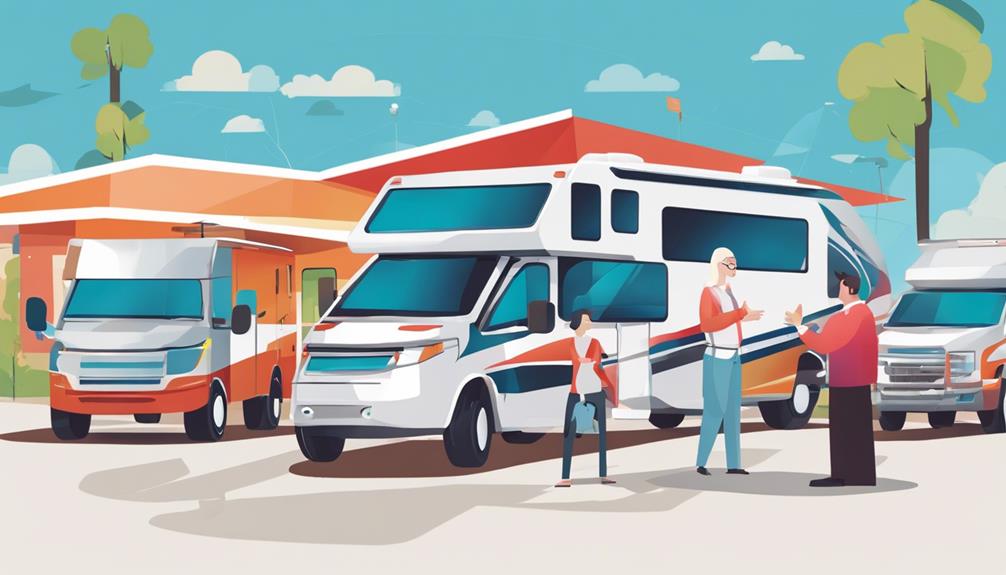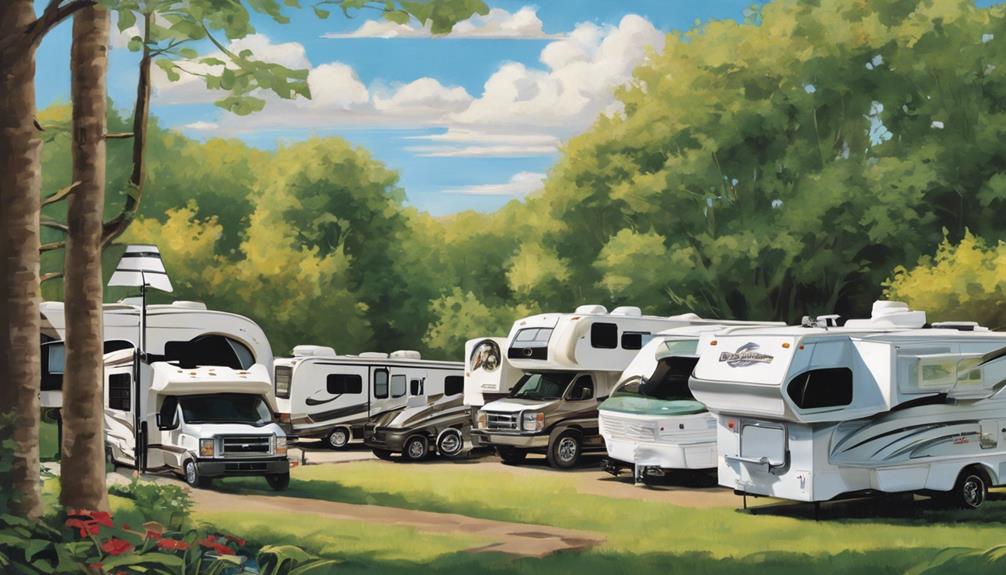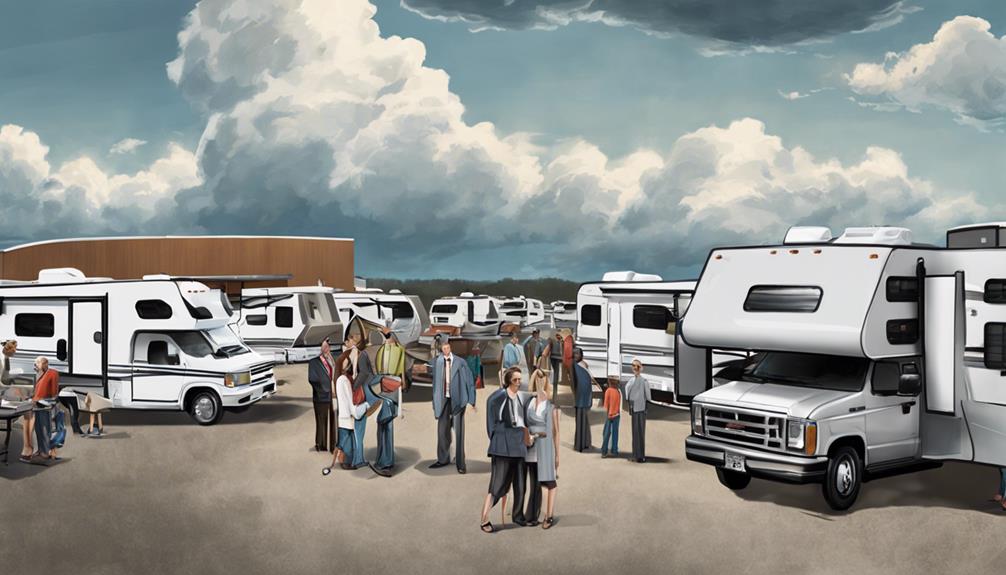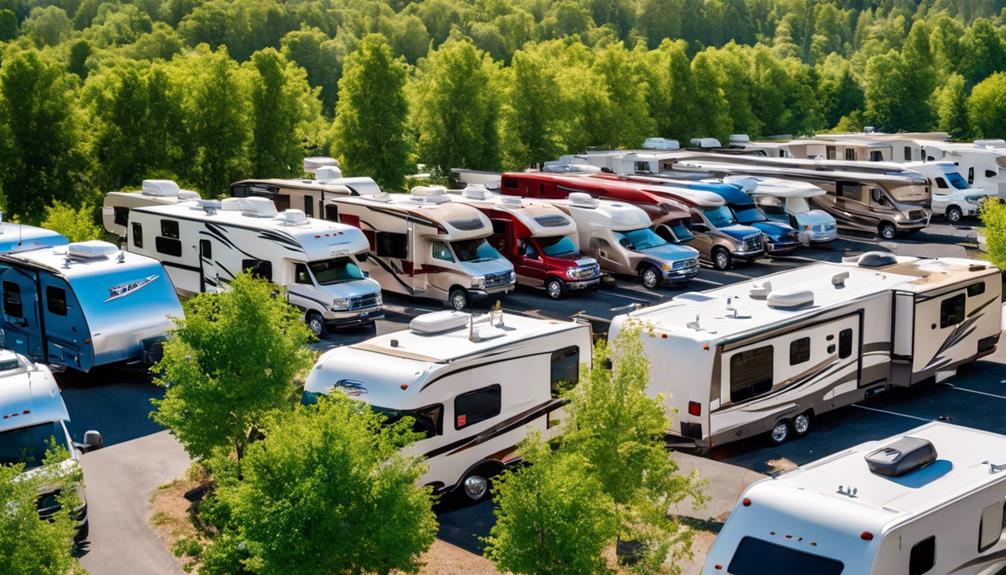As a recreational vehicle dealer in Wisconsin, you know the importance of a dealer bond in maintaining compliance and protecting your customers. This bond not only serves as a financial safety net but also reflects your commitment to ethical practices. However, navigating the legal requirements and ensuring you're meeting all obligations can be complex. What steps do you need to take to secure this bond, and what challenges might you face along the way? Understanding these aspects could be crucial for your business's success.
What Is a Dealer Bond?

A dealer bond, often referred to as a surety bond, serves as a financial guarantee that you, as a recreational vehicle dealer, will operate your business in accordance with state laws and regulations. This bond protects consumers and ensures you adhere to ethical practices while conducting your business.
By securing an auto dealer bond, you also contribute to the overall integrity of the automotive industry, as these bonds promote compliance and accountability among dealers, fostering trust within the marketplace consumer protection in the automotive industry.
When you obtain a dealer bond, you're essentially entering into a contract with a surety company, which agrees to back you financially. If you fail to comply with relevant laws or regulations, the surety company will cover any financial losses incurred by affected parties, up to the bond amount.
You'll then be responsible for reimbursing the surety for any payouts made on your behalf. The bond amount varies by state, reflecting the unique regulatory environment and market conditions. Typically, you'll need to provide specific documentation and undergo a background check to secure your bond.
It's crucial to maintain your bond status, as it not only enables you to operate legally but also builds trust with your customers. In summary, a dealer bond is essential for your business and serves as a protective measure for consumers.
Importance of the Dealer Bond
Having a dealer bond is crucial for any recreational vehicle dealer, as it not only ensures compliance with state regulations but also builds credibility with customers. When you secure a dealer bond, you demonstrate your commitment to ethical business practices and consumer protection.
This bond acts as a safety net, providing financial assurance that you'll fulfill your obligations to customers and adhere to the laws governing your industry. Additionally, obtaining a bond protects consumers against financial harm from dishonest practices, thereby strengthening your reputation in the marketplace and ensuring that you maintain compliance with local regulations understanding used car dealer bonds.
By obtaining this bond, you signal to potential buyers that you take your responsibilities seriously. It reassures them that if any issues arise—such as failure to deliver a vehicle or fraudulent practices—they can seek compensation through the bond. This sense of security can significantly influence a buyer's decision, giving you a competitive edge in the market.
Moreover, having a dealer bond can enhance your reputation within the industry. Other businesses and partners are more likely to trust and collaborate with you, knowing you've taken the necessary steps to protect your customers.
Legal Requirements in Wisconsin

In Wisconsin, recreational vehicle dealers must meet specific legal requirements to operate legally and maintain their dealer bond. First, you need to register your business with the Wisconsin Department of Transportation. This involves filing the necessary paperwork and paying applicable fees.
You'll also need a physical location for your dealership, as home-based operations mightn't meet local zoning laws. Additionally, obtaining a license bond is crucial, as it protects consumers by ensuring you adhere to state regulations and fulfill your obligations as a dealer.
To do this, you must complete a written application and provide proof of your dealer bond. This bond protects consumers by ensuring you adhere to state regulations and fulfill your obligations as a dealer.
You should also familiarize yourself with the sales tax regulations, as they apply to the sale of recreational vehicles. Keeping accurate records is crucial, so you'll need to maintain detailed documentation of your transactions.
Lastly, it's essential to comply with safety and environmental regulations, especially concerning vehicle sales and emissions. By staying informed and adhering to these legal requirements, you'll ensure your dealership operates smoothly and maintains its credibility in the industry.
How to Obtain a Dealer Bond
To operate as a recreational vehicle dealer in Wisconsin, securing a dealer bond is a necessary step. The process for obtaining this bond is straightforward, and you can complete it in a few steps.
First, you'll need to research and choose a licensed surety bond provider. It's crucial to select a reputable company with a solid track record.
Next, you'll need to gather the required documentation, which typically includes your business details, proof of your dealership license, and any financial statements the surety might request.
Once you have all your documents in order, you can apply for the bond. Most surety companies offer online applications, making it easy to submit your information.
After submitting your application, the surety will evaluate your qualifications and determine your bond premium based on factors like your credit score and business history.
If approved, you'll receive the bond agreement, which you'll need to sign and return. Finally, pay the premium, and your dealer bond will be issued.
Keep a copy for your records, as you'll need it to comply with state regulations and to operate legally as a recreational vehicle dealer.
Costs Associated With the Bond

Securing a recreational vehicle dealer bond comes with various costs that you should be aware of before moving forward. The primary expense is the premium you'll pay to the surety company that issues the bond. Typically, this premium ranges from 1% to 15% of the total bond amount, depending on your credit score, financial history, and the bond's required amount. If your credit is strong, you'll likely pay a lower percentage.
Additionally, you might face application fees or other administrative costs when you apply for the bond. Some surety companies may charge for credit checks or additional documentation, so it's essential to inquire about these fees upfront.
You should also consider potential renewal costs down the line, as bonds typically need renewing every year. While you won't be paying the full bond amount each time, the premium could increase if your financial situation changes or if there are claims against your bond.
Keep these costs in mind when budgeting for your RV dealership, as they can add up and impact your overall financial planning.
It's crucial to shop around and compare quotes from different surety companies to find the best deal.
Bond Renewal Process
Renewing your recreational vehicle dealer bond is an important process that requires attention to detail and timely action. Start by checking the expiration date of your current bond to ensure you initiate the renewal process well in advance. Typically, you'll want to begin this process at least a month before your bond expires to avoid any lapses in coverage.
Next, review any changes in your business circumstances since your last renewal. This may include alterations in your business structure or a change in the types of vehicles you sell. Gather the necessary documentation, such as your business license and financial statements, as you'll need these for the renewal application.
Contact your surety company or bonding agent to discuss the renewal process. They'll guide you through the application, which may involve a reassessment of your financial standing and business practices.
Be prepared to pay the renewal premium, which might differ from your initial bond cost based on your current risk profile.
Common Challenges Faced

Navigating the world of recreational vehicle dealer bonds can present several common challenges. One major hurdle is understanding the specific bond requirements in your state. Each state has different regulations, and staying informed can be overwhelming, especially if you're new to the industry.
Another challenge is securing the bond itself. You might face difficulties finding a surety company willing to underwrite your bond if your credit rating isn't stellar. This can lead to higher premiums or even denial of coverage, which can stall your business operations.
Additionally, you'll need to keep track of the bond renewal process and ensure you meet all deadlines. Missing a renewal date can lead to fines or a suspension of your dealer license, which can be detrimental to your business.
Lastly, you may encounter disputes related to claims made against your bond. If a client feels wronged, they might file a claim, putting your financial stability at risk.
These challenges require you to stay proactive, informed, and organized to navigate the complexities of maintaining your recreational vehicle dealer bond effectively.
Tips for Successful Compliance
To ensure successful compliance with recreational vehicle dealer bond requirements, you should start by thoroughly researching your state's regulations. Each state has specific rules regarding dealer bonds, so knowing the details will help you avoid costly mistakes.
Make a checklist of the requirements, including bond amounts, renewal periods, and any necessary documentation.
Next, establish a strong relationship with a reputable surety bond provider. They can guide you through the application process and help you understand terms that might be confusing.
Don't hesitate to ask questions—clarity will prevent issues down the line.
It's also crucial to maintain accurate records of all transactions and communications. Keeping organized documentation can be a lifesaver during audits or disputes.
Regularly review your compliance status and make adjustments as needed to stay aligned with any regulatory changes.
Lastly, consider joining industry associations or groups. Networking with fellow dealers can provide insights and tips on best practices for compliance.
Staying informed and proactive will enhance your business reputation and ensure you meet all bond requirements effectively.
Resources for Dealers

What resources are available to help you thrive as a recreational vehicle dealer?
First, consider industry associations like the RV Dealers Association (RVDA). They provide valuable training, networking opportunities, and up-to-date information on industry trends. Joining such organizations can keep you informed and connected.
Next, explore online platforms and forums tailored for RV dealers. Websites like DealerSocket and RVTrader offer tools for inventory management, marketing, and customer relationship management. Leveraging these tools can streamline your operations and enhance customer engagement.
Don't overlook local resources, too. Your local Small Business Administration (SBA) office can provide guidance on financing and business development. Networking with other dealers in your area can also lead to shared insights and collaboration opportunities.
Conclusion
In conclusion, securing a Recreational Vehicle Dealer Bond is crucial for your success and compliance in Wisconsin. It not only protects you but also assures your customers that you're committed to ethical practices. By understanding the legal requirements, costs, and renewal process, you can navigate potential challenges effectively. Remember to stay informed and utilize available resources to ensure your dealership thrives. With the right approach, you'll be well on your way to operating a successful business.


